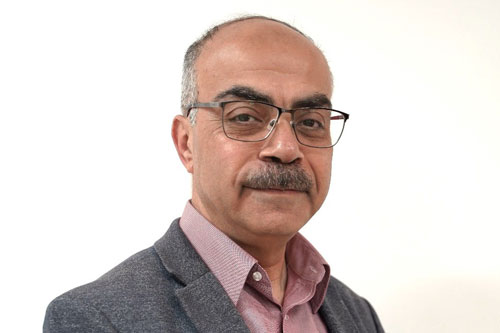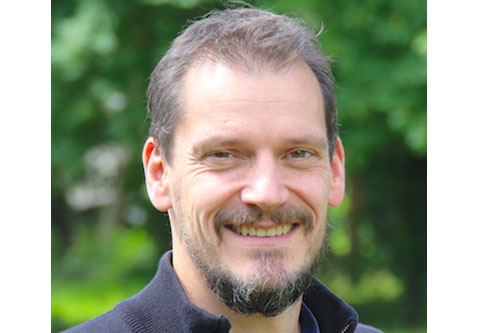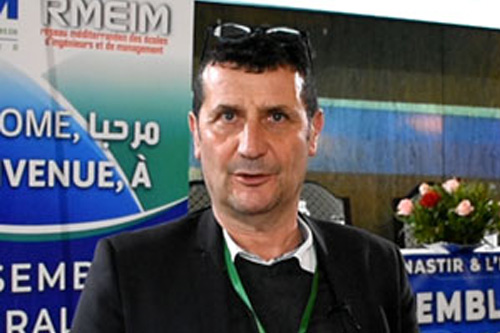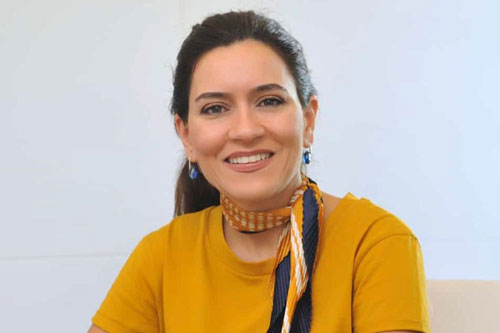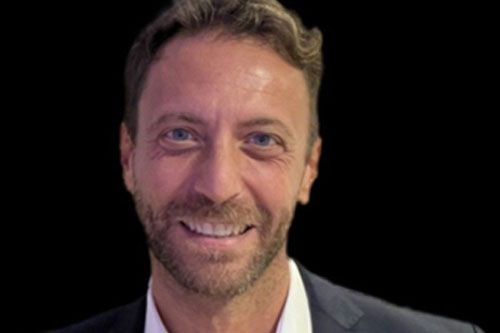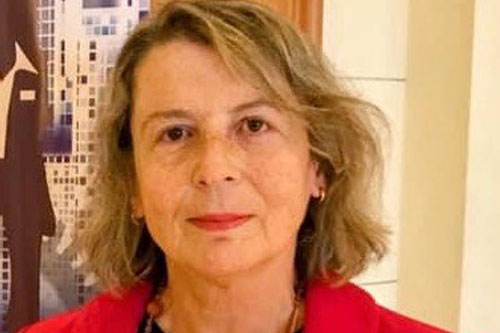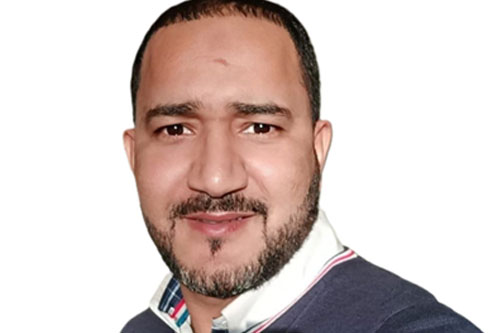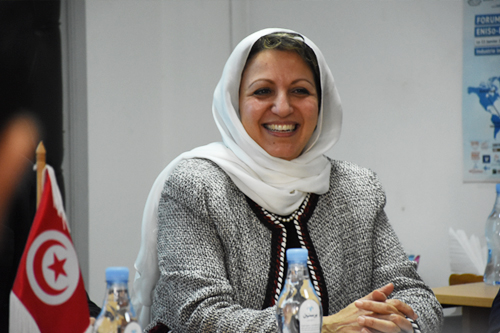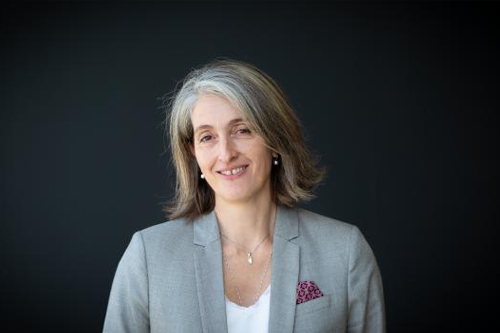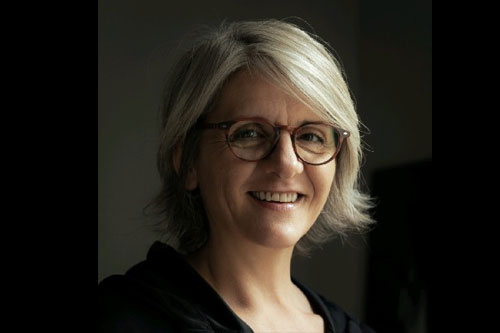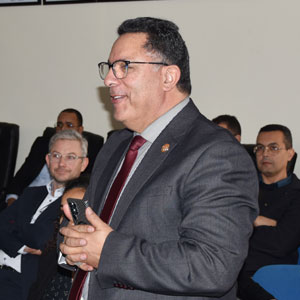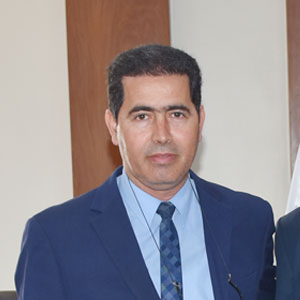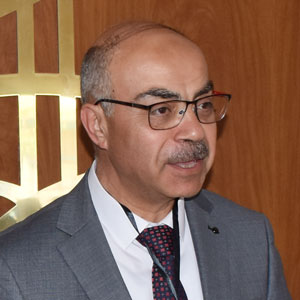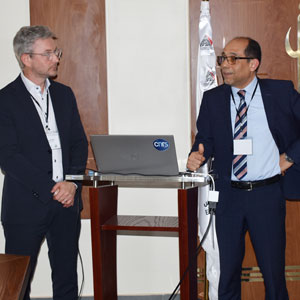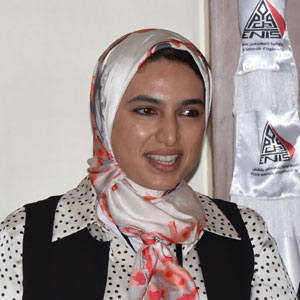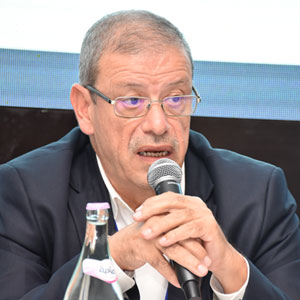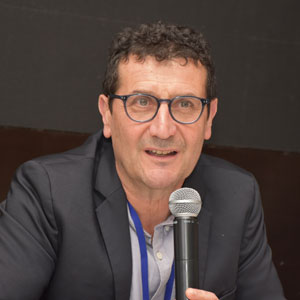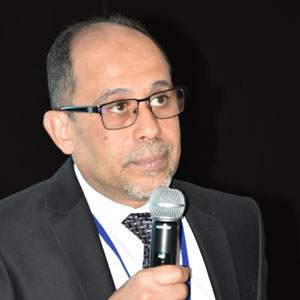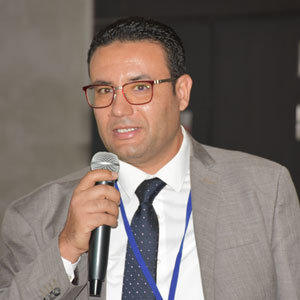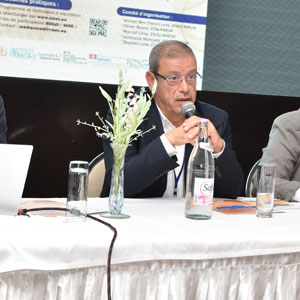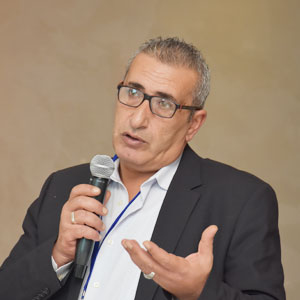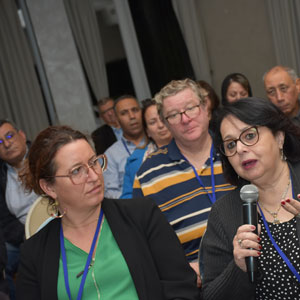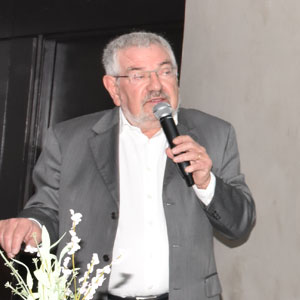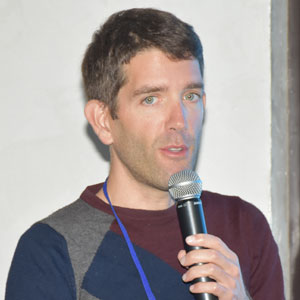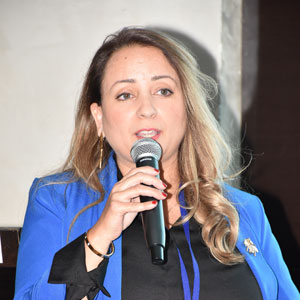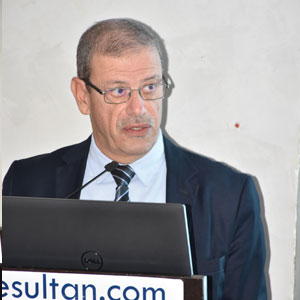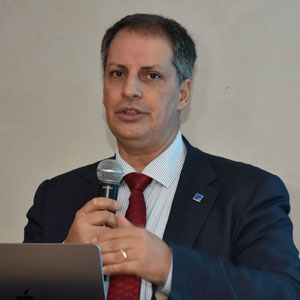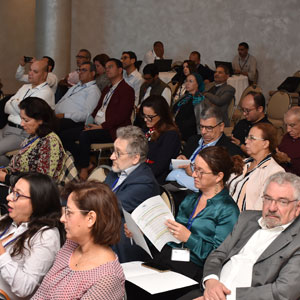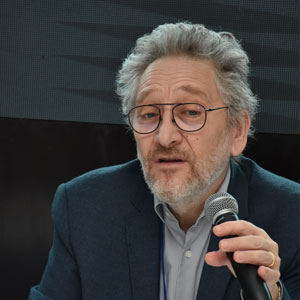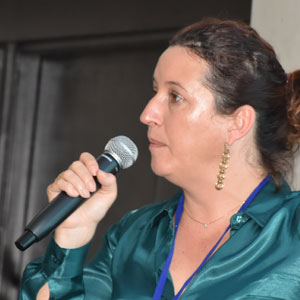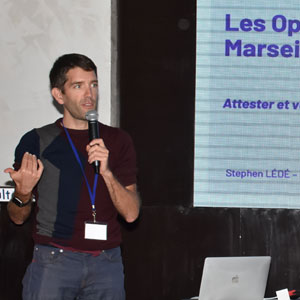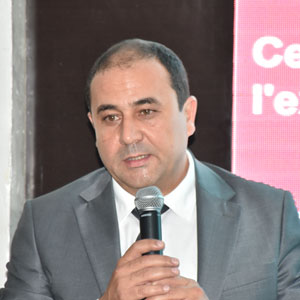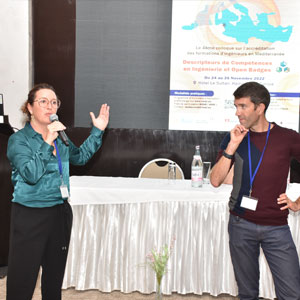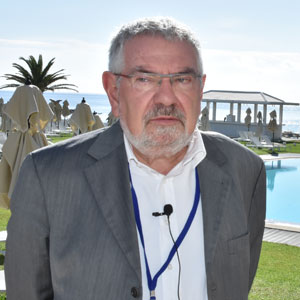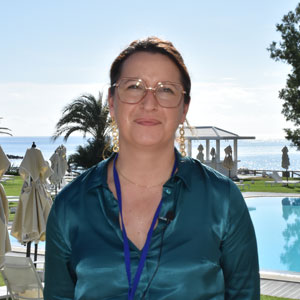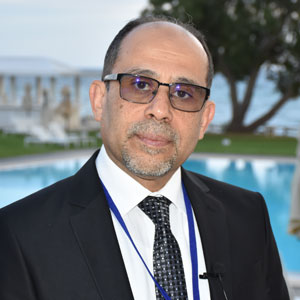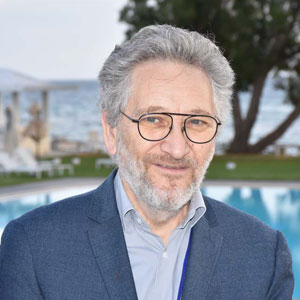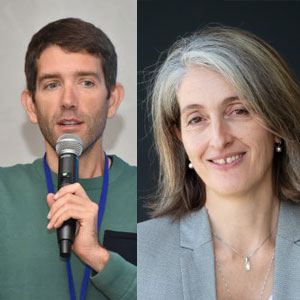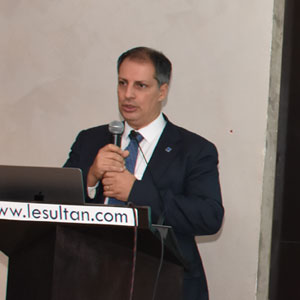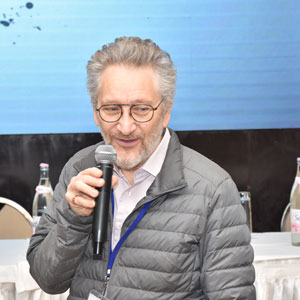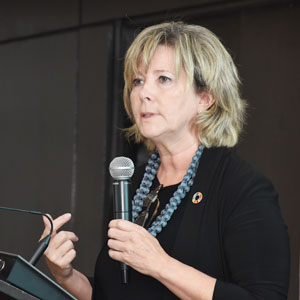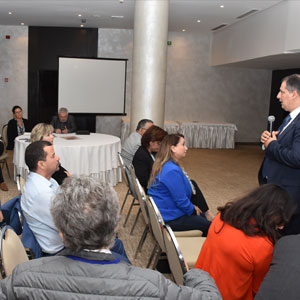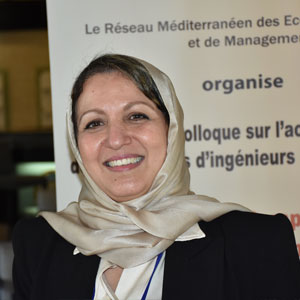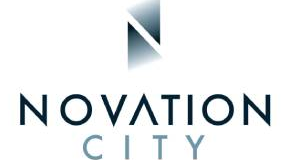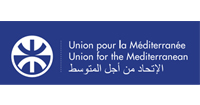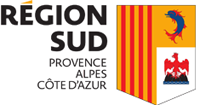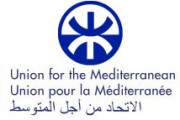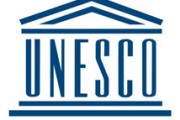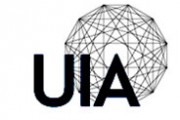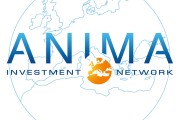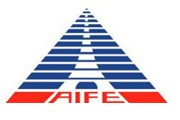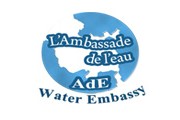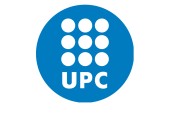
Pages
President's word
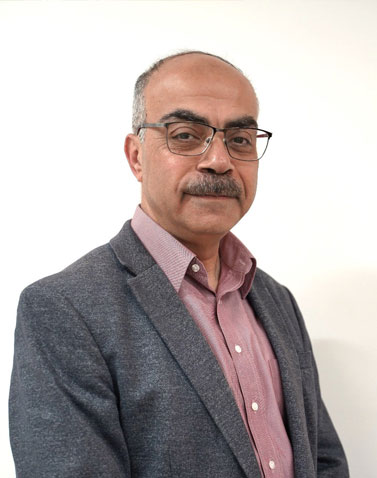
Professor at An-Najah National University, Palestine
C V
Dear RMEIM Members and Colleagues
I am deeply honored to lead this esteemed network of universities in the Mediterranean region for this term, surrounded by highly qualified colleagues who have become like family to me.
As a faculty member at An-Najah National University in Palestine, and since joining the network, I had the pleasure of representing my university in the network. We have actively engaged in RMEIM events and activities, and I have served on the board for the past 8 years. In this network, members are given equal opportunities based on performance, dedication, and commitment to the network. And here I am given the honor and responsibility of presiding the network after several years of fruitful collaboration and comradery with its members.
In this challenging times for the Mediterranean, marked by various types of conflicts, instability, and global challenges affecting education along with the growing global events and challenges, there is an urgent need to prioritize peace and well-being, in addition to adhering to global trends of sustainability, resilience, and equity across society and education.
Despite our diverse cultures, thoughts and traditions, and socio-economic and political challenges, we share a rich common history and face common regional interests and challenges. Therefore, the RMEIM network could, and should contribute positively for the benefits of young generations of students, staff, and their institutions. This has been a shared vision for the network and its members.
Since it establishment in 1997, the RMEIM has grown into a vibrant organization with over 60 member universities from various countries. Our mission is to “play a central role in highlighting the specific advantages of the Mediterranean, shaping global approach to engineer and management education and provide a unique forum for information, research, networking, and debate on innovation and best practice. RMEIM members firmly believe in bringing institutions together and work to bring concrete solutions for a better world.” The RMEIM has successfully established strong relationships among members that was built on mutual respect, equity, common values, friendships, and mutual support.
Over the years, the network has been fortunate with its active boards and presidents who have attained remarkable achievements. Therefore, am committed to building on past achievements and will follow the footsteps and paths already established by the founding members. Furthermore, during this tough time in Palestine, I trust that I can bring new insight into the network that should widen the horizon and brings new levels of cooperation. Students from certain parts of Mediterranean might be disadvantaged due to their living environment, economic, and political constraints, along with some mobility restrictions. At the same time, they have strong culture and great potentials, and highly competent. Therefore, we have the opportunity to create opportunities for them through academic and non-academic activities. We should create new avenues for them to interact with students from member countries that will bring mutual benefits.
My vision through this presidency term will be to continue the work of former boards and presidents, increase active memberships from all sides of the Mediterranean, increase awareness and visibility of RMEIM, increase students’ activities in the network, increase scientific interactions, build on common themes for the network (for example, gender equality, sustainability, SDGs, entrepreneurship, environment, climate change, etc.), and, of-course, attract funding.
We will continue in the same spirit of co-working with a mutual respect, trust, sense of belonging, and provide a space to share knowledge, focusing on global trends, such as commitment to SDGs. Together, we can succeed and bridge the gaps. The network has been successful in increasing the diversity and inclusion, and has been guided by the values of justice and fairness. These are cherished by RMEIM and its members. Therefore, in this environment, I trust that we all will continue along the same path, and will strengthen the sense of Mediterranean family.
Each one us has a role to play, whether being a president, a vice president, a board member, or member in the network. We all have a shared vision and strive for peaceful co-existence in our region and in the wider world. Let us make RMEIM our extended home and family.
Wishing you all good health, success, and a thriving partnership ahead.
Khaled Al-Sahili, Professor at An-Najah National University, Palestine
President-Elect, RMEIM (2024 – 2026)





